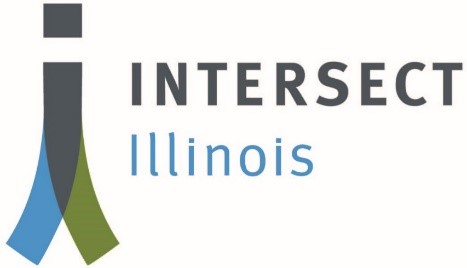Questions, Answers and Predictions About New Federal COVID-19 Vaccination Mandates
Q: Under the proposed “vaccinate or test” requirement for companies with 100 or more employees, can employers adopt a stricter approach and mandate COVID-19 vaccinations without a testing option?
A: Yes, the federal OSHA Emergency Temporary Rule (ETS) will be the legal floor. Private employers can always implement stricter COVID-19 protocols (i.e., vaccination alone) than what is minimally required, subject to applicable state law limits. However, testing as an alternative to vaccination could be a potential disability or religious accommodation.
Q: Won’t vaccination exceptions for disability and religious accommodations create a massive loophole that essentially swallows the rule?
A: There is that potential, depending on how employers administer the accommodation process, develop forms and address requests. However, under the Americans With Disabilities Act (ADA) and Title VII, there are legal limits, such that a proposed accommodation can be denied when it would impose an “undue hardship” on the employer or a significant risk of substantial harm to the health or safety of the employee, the employee’s co-workers, customers or others that cannot be eliminated or sufficiently reduced by reasonable accommodation. Further, the undue hardship test under Title VII for religion is different (and lesser) than the test under the ADA — i.e., triggered when an employer is forced to undertake “more than a de minimis cost.” This can potentially include economic costs (such as lost business or hiring additional employees) and non-economic costs (such as compromising the integrity of a seniority system, increasing safety risks, or increasing the risk of legal liability from employees, customers and others).
Q: Will the presence of antibodies attributable to a prior diagnosis of COVID-19 give employees a “pass” on any vaccination mandate, at least for a time?
A: This would be a logical exclusion to the vaccine and testing requirements, but the Biden administration has not signaled that the proposed OSHA ETS, federal contractor requirements or healthcare worker rules will include this exception.
Q: Will employers be required to pay for the cost of COVID-19 testing for employees who opt for weekly testing instead of receiving the vaccine?
A: The Biden administration has not indicated whether employers or employees will foot the bill for weekly testing. However, it is likely the administration will require employers to pay.
Currently, federal and most state benefits laws do not require employers to cover the cost of a COVID-19 test administered as part of “return to work” or other general operational programs. Federal regulations only require health plans and insurers to cover the full cost of a COVID-19 test for insured individuals if there is a medical reason to be tested (i.e., the individual has symptoms of COVID-19). Likewise, most state executive orders to date do not address who pays for testing.
Having said this, some state wage and hour statutes (e.g., California) require employee reimbursement for certain business-related expenses. Further, a combination of old and new EEOC ADA guidance, when read together, suggests that employers must pay for mandatory COVID-19 testing as a medical examination if the testing is because of an employer’s belief that the employee poses a direct threat of substantial harm to the employee or others.
Q: Can employers still provide incentives to employees to receive the COVID-19 vaccine?
A: Yes. As the EEOC has explained, employers may provide incentives for employees to receive the vaccine without running afoul of federal non-discrimination statutes, provided the incentive is not “so substantial as to be coercive” and complies with rules regarding employee wellness plans, if applicable. It is unlikely that this general rule will be impacted by the OSHA ETS or any other part of the administration’s employee vaccination plan. Indeed, it may be more cost-effective for employers to pay their employees to receive the vaccine than to pay for weekly testing (assuming the ETS requires employers to pay for employees’ tests, which remains to be seen, as explained above).
Q: Is there any indication of how state unemployment insurance will apply should an employee resign or be terminated because of the federal vaccine and testing mandates?
A: Unemployment insurance varies from state to state, so there is no clear answer. Many states provide for the denial of unemployment compensation when an employee resigns without good cause or is terminated for willful disregard of a lawful instruction from the employer. However, even within the same state, these requirements can lead to contradictory outcomes — for example, in some states religious objections to certain working conditions can constitute “good cause” for separation.
Q: Will unionized employers need to bargain over the vaccination requirement before implementation?
A: If a workforce is unionized, the National Labor Relations Act (NLRA) generally requires employers to bargain with a covered union over the terms and conditions of employment. Although the National Labor Relations Board has not addressed whether COVID-19 vaccinations are a mandatory subject of bargaining (this is being litigated), it has required unionized employers to bargain over similar policies, such as requiring employees to obtain a flu vaccine or wear a mask while working. Thus, under usual circumstances, an employer likely is required to bargain with a union over a vaccination requirement prior to implementation.
However, a collective bargaining agreement may give the employer the right to take certain unilateral actions. While an agreement may not explicitly reference vaccines, a broad management rights clause could contain favorable language permitting the employer to make a unilateral decision to implement reasonable workplace safety rules without bargaining.
Further, the Biden administration’s vaccine mandate alters the usual analysis. This is because, as a general rule, a collective bargaining agreement cannot displace applicable federal laws or regulations. If the federal government requires mandatory vaccinations, then the employer must implement the mandate regardless of its collective bargaining agreements. However, even if the vaccine itself is required by law (or permitted under the applicable collective bargaining agreement), the employer may still have a bargaining obligation on the “effects” of the vaccine program, such as who pays for tests for the unvaccinated, whether and how employees will receive time off to get the vaccine, and the procedure for potential vaccination exceptions.
Q: For healthcare employers with more than 100 employees, if the OSHA ETS has not yet been issued, must covered healthcare providers offer PTO to employees to receive the vaccine as part of the separate Centers for Medicare & Medicaid Services (CMS) rule?
A: Likely, no. Based on the Biden administration’s plan, the obligation to provide PTO will arise from the OSHA ETS alone. If the ETS has not taken effect, then it will not impose the PTO obligation on any covered entities, including healthcare facilities. However, such facilities may be required to permit employees to use accrued PTO for vaccination, testing or recovery per existing employer policies or other laws, such as the federal Family and Medical Leave Act or ADA. This obligation will depend on the circumstances of each case.






